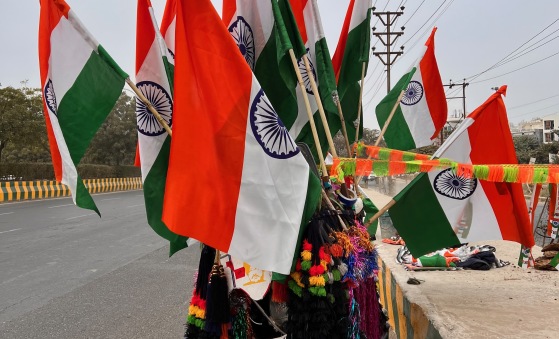
A high court in southern India has ruled that individuals who marry under Christian personal law should be deemed to have left Hinduism, thereby forfeiting their eligibility for government benefits reserved for Scheduled Castes (SCs).
The Madras High Court’s Madurai Bench issued the verdict in response to a petition challenging the election of a woman to a local body seat designated for SC members. The petitioner, V. Iyyappan, argued that V. Amutha Rani, having married in a Catholic church under the Indian Christian Marriage Act of 1872, had renounced her Hindu caste identity and was no longer entitled to reservation benefits.
Presiding judge Justice L. Victoria Gowri ruled in favour of the petitioner, stating that Rani had “voluntarily renounced her socio-cultural identity as a Scheduled Caste Hindu” by choosing to marry according to Christian personal law. As a result, the judge directed officials to declare her election void.
Rani, through her legal counsel, maintained that she had not converted to Christianity and had never been baptised. She argued that her marriage, though solemnised in a Catholic church, was conducted in accordance with the Church’s provision for interfaith unions. Her legal team noted that the Catholic Church allows marriages between Catholics and non-Christians.
However, the court referenced Church records and found that the couple had followed the procedures typically reserved for two Catholics. It also noted that their children had been baptised in the Christian faith, supporting the claim of religious conversion.
The petitioner cited precedent that individuals who adopt religions outside Hinduism, Buddhism or Sikhism are not entitled to Scheduled Caste protections under a 1950 Presidential Order. The court echoed this view, stating that Rani could not “blow hot and cold” by simultaneously claiming SC benefits while following another religion.
The 54-page judgment, released on 14 May, has drawn criticism from some legal experts. Supreme Court advocate M. P. Raju described the verdict as flawed and inconsistent with existing interpretations of the law. “The logic underpinning the ruling is unsound,” he told UCA News.
India’s legal system does allow for appeals to a higher bench, which Rani may pursue.
The original policy, dating back to 1950, restricts SC-related benefits—such as reserved seats in education, employment, and politics—to individuals practising Hinduism or other Indian religions. Christians and Muslims of SC origin are excluded on the grounds that their faiths do not traditionally recognise caste divisions.
However, this view has been challenged by activists and religious leaders for decades. Father A. Santhanam, a Jesuit priest and lawyer, said the discrimination persists despite constitutional guarantees of religious equality. “For 75 years, Christians and Muslims of Dalit origin have faced this injustice,” he told UCA News on 16 May.
A case is pending before India’s Supreme Court that seeks to challenge this exclusion. In 2022, the Modi government appointed a three-member commission to examine the issue following a court directive. However, progress remains stalled due to the panel’s continued delay in submitting its findings.
The country's Dalit population is estimated at over 200 million, and nearly 60 percent of the country’s 25 million Christians trace their roots to Dalit or tribal communities.
Rewritten version of the original article from UCA News.




